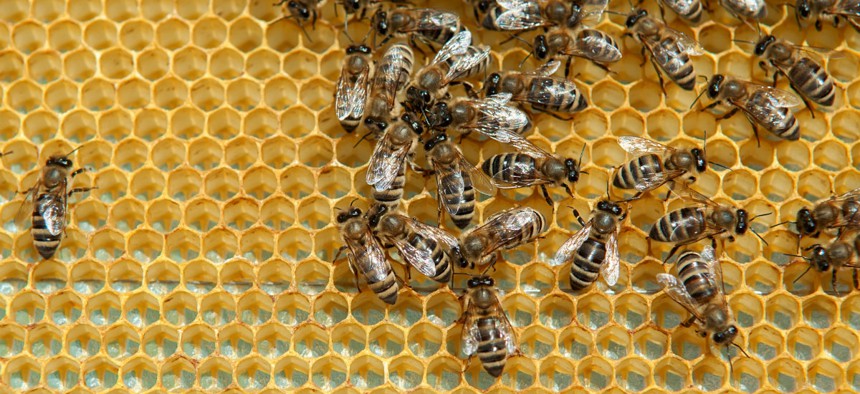Anti-Zika Mosquito Spraying Kills Millions of Bees in South Carolina County

On the heels of travel-related Zika cases, the county used a spray that’s effective in controlling mosquitos, and highly toxic to bees.
Vector control is a delicate balancing act.
Zika virus is an increasing concern for many counties around the country, and now more than ever, the job of monitoring mosquito populations requires that officials prioritize disease control without losing sight of environmental stewardship.
When the balance tips too far in the direction of mitigation, it can have a lasting impact.
In Dorchester County, South Carolina, officials have apologized to beekeepers for unintentionally killing off millions of bees as a result of aerial spraying for mosquitos on Sunday.
The spraying came on the heels of news that four travel-related cases of Zika virus had been detected in the county northwest of the city of Charleston.
One beekeeper, Juanita Stanley, lost 46 hives, which adds up to more than 2 million dead bees.
Stanley is a registered beekeeper in the county, and regularly gets notifications when mosquito spraying is scheduled. In this case, however, she says she was never told.
"Had I known I would have been camping on the steps doing whatever I had to do, screaming no you can't do this," Stanley said, according to WCSC-TV.
Now, her bee yard which once pulsed with activity, is totally silent.
“I don’t know where to go from here,” Stanley told The Post and Courier. “I can’t just go out and buy more bees, and right now I’m focused on how do I clean up all this mess? What can be reused and what can’t? What steps do I take?”
Other area beekeepers report similar stories. Andrew Macke, the fire captain for the town of Summerville was working when the aerial spraying occurred.
“My wife called a short time after the flyover and said, ‘we have a mass killing,’ ” Macke said, according to The Post and Courier. “ ‘We have thousands and thousands of bees dead all around our pool deck and our driveway, just everywhere.’ ”
Dorchester used an insecticide called Naled which has been used for mosquito control since 1959. Naled may be effective at controlling the populations of mosquitos that carry Zika, but it is also highly toxic to bees.
Had officials worked with beekeepers, a number of steps might have been taken to avert the bee die-off that has cost some in the county their livelihoods.
County officials have said that no additional aerial sprays are scheduled at the moment, and they plan to contact registered beekeepers directly by phone or by email three to five days in advance of future spraying activity.
Quinn Libson writes for Government Executive’s Route Fifty.

NEXT STORY: Will Austin Become Texas' First 'Sanctuary City'?; Maine Gov. Swears Off Press






